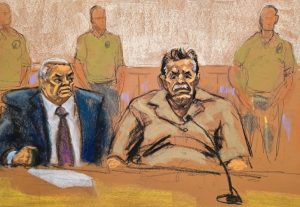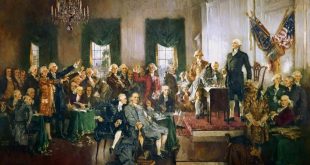 -Editorial
-Editorial
Ismael Zambada García, known as El Mayo and widely regarded as one of the founders of the Sinaloa Cartel, pleaded guilty in federal court to charges that he led one of the world’s largest and most violent drug trafficking organizations.
The 75-year-old from Sinaloa, Mexico, admitted to being a principal leader of a continuing criminal enterprise and to participating in a racketeering conspiracy under the Racketeer Influenced and Corrupt Organizations (RICO) Act. The plea caps a decades-long pursuit of Zambada, who evaded capture for years while his cartel expanded its role as a dominant force in the international drug trade.
Federal prosecutors said the Sinaloa Cartel, under Zambada’s leadership, trafficked vast quantities of cocaine, heroin, methamphetamine, and, more recently, fentanyl into the United States, generating billions of dollars in illegal proceeds. Court filings detail how the organization used networks of land, sea, and air transportation, including tunnels and maritime routes, to move drugs north while laundering profits back to Mexico.
The cartel’s operations initially centered on cocaine distribution in the 1980s and 1990s through partnerships with South American suppliers. By the 2000s, the organization had shifted toward fentanyl and methamphetamine production inside Mexico, relying on chemical precursors imported from Asia. Authorities said this expansion allowed the group to dominate U.S. drug markets, contributing to widespread addiction and overdose deaths.
According to U.S. prosecutors, Zambada and the cartel maintained their dominance through systemic violence and corruption. Witnesses in related trials testified that cartel members routinely bribed Mexican officials at multiple levels of government, from police officers to senior security leaders. The group allegedly used intimidation, kidnappings, and murder to protect shipments and deter cooperation with law enforcement.
Prosecutors also noted the cartel’s long-running conflict with rival organizations, including the Juárez Cartel, which contributed to violence in border cities such as Ciudad Juárez and spilled into U.S. communities like El Paso, Texas.
Zambada had been charged in multiple federal jurisdictions, including the Eastern District of New York, the Western District of Texas, the Northern District of Illinois, the Southern and Central Districts of California, and the District of Columbia. As part of the plea agreement, the Western District of Texas indictment was transferred to New York for resolution, and other indictments will be dismissed at sentencing.
He now faces a mandatory minimum of life in prison for leading a continuing criminal enterprise, and a maximum of life on the RICO count. He has also agreed to a $15 billion forfeiture judgment. His sentencing is scheduled for January 13, 2026, before the U.S. District Court in Brooklyn.
The guilty plea brings Zambada’s criminal career to an end nearly a decade after his partner and fellow cartel founder, Joaquín “El Chapo” Guzmán, was convicted and sentenced to life in the United States. Together, the two men were credited with building the Sinaloa Cartel into one of the most powerful drug trafficking organizations in history.
While Guzmán’s trial drew global attention, Zambada was often described as the quieter but equally influential figure who managed cartel operations during his partner’s imprisonment and after his extradition. For years, U.S. authorities considered him one of the most significant fugitives in the drug war.
The case against Zambada was the result of a coordinated investigation involving the FBI, Drug Enforcement Administration (DEA), and Homeland Security Investigations (HSI), with contributions from U.S. Attorney’s Offices across several states and the Justice Department’s Criminal Division.
Prosecutors described the plea as part of Operation Take Back America, a broader Justice Department initiative to target cartels and transnational criminal organizations.
U.S. Attorney General Pam Bondi welcomed the guilty plea, calling it a landmark moment in the fight against international drug trafficking.
In a press conference, Bondi credited cooperation with Mexican authorities as key to bringing cartel leaders before U.S. courts. “We want to thank the authorities of Mexico for all their help in bringing these cartel leaders to justice,” she said.
While declining to discuss specific investigative details, Bondi emphasized the scale of recent prosecutions under the Trump administration. “Under President Trump’s direction, we have brought more cartel leaders to face justice than any other government in the history of this country,” she told reporters.


